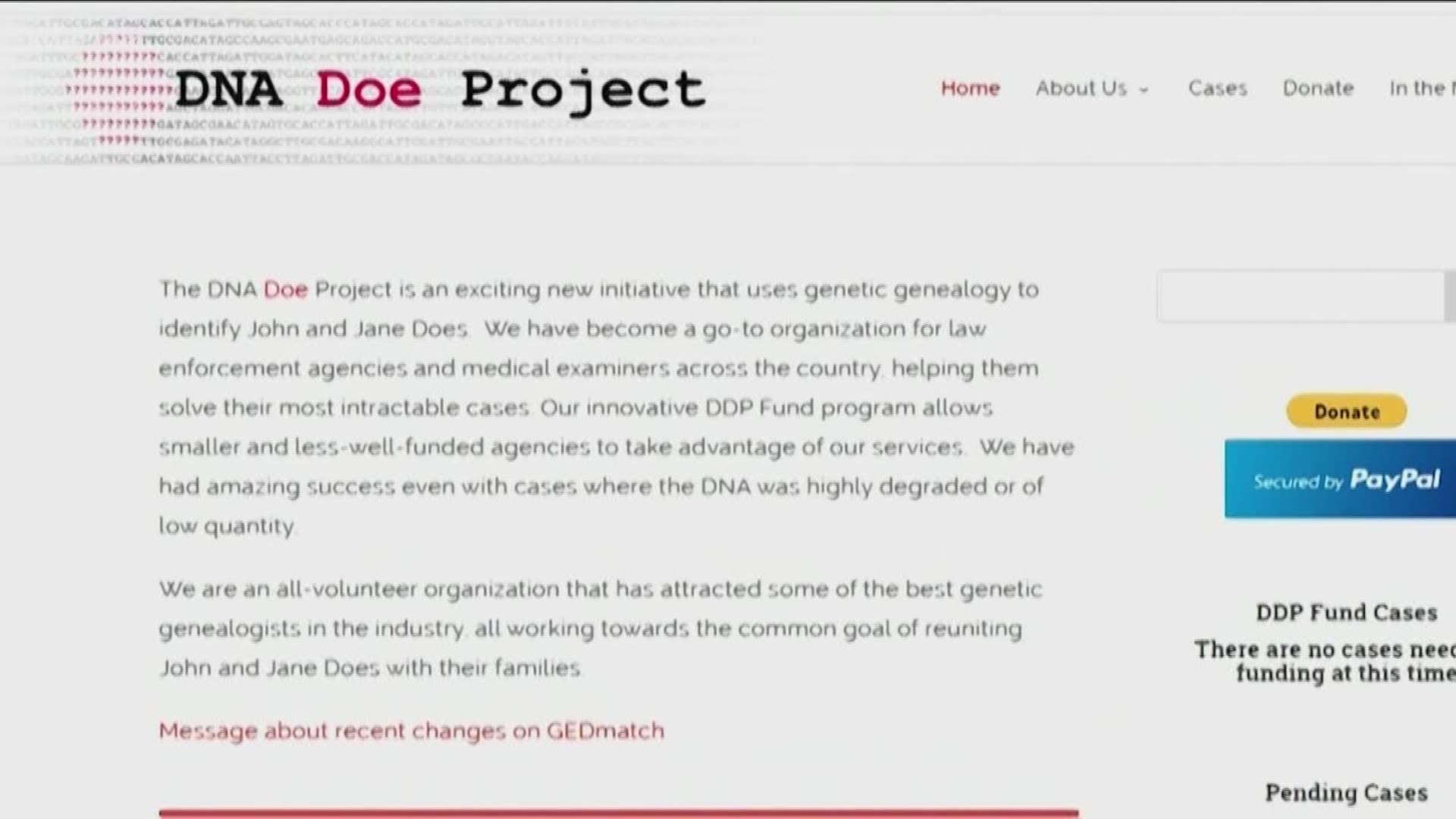WILLIAMSON COUNTY, Texas — Recently, the nonprofit organization DNA Doe Project helped identify 17-year-old Sue Ann Huskey, or "Corona Girl," after 30 years. The group also played a part in the Debra Jackson case, or Orange Socks.
"It's like putting a giant puzzle together," said Kevin Lord, the DNA Doe Project's lab liaison. "So once we get enough of those puzzle pieces put together, it keeps narrowing down our search field more and more and more.”
There are thousands of cases waiting to be solved with DNA, and so far the DNA Doe Project has made more than two dozen identifications of Jane Does and John Does across the country.
Lord said without people using GEDmatch and uploading their DNA results from websites like Ancestry and 23andMe, a lot of cold cases will stay cold. There's a lot of work that goes into what they do.
"We work hand in hand with law enforcement. Generally, law enforcement approached us because they've heard about other cases that we've worked on," said Lord. "We'll work with them to have that evidence to a lab where they can actually extract DNA."
RELATED:
When DNA testing is done, they'll make a file, upload it to genealogy databases and get a list back of potential DNA matches.
"In most cases, we're talking more like second cousins, third cousins, fourth cousins and beyond," said Lord. "In the case of Sue Ann Huskey, we were able to eventually find a marriage that was one of her sets of great-grandparents."
The investigative work kicks in after that. They'll search social media, public databases, anything that gives them a lead until they find their person.
RELATED:
"We are definitely using it for good, but people put a lot of information out there and we end up having to rely on that quite a bit. So it can help us piece things together," said Lord about social media. "When we can provide that identification, it obviously helps brings some answers to the family of what happened to their missing loved one, but it's also just the beginning of helping law enforcement actually hopefully get that case solved eventually."
In order to help the DNA Doe Project and detectives, you have to opt-in on GEDmatch to give access to your DNA results. It doesn't mean they have your DNA, but they will be able to see if you match with their missing person.
PEOPLE ARE ALSO READING:

